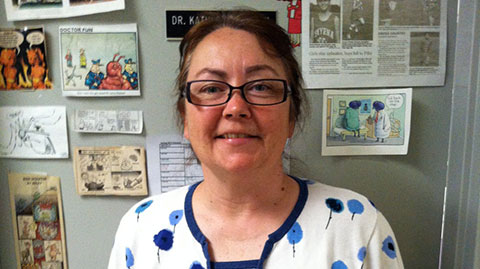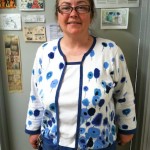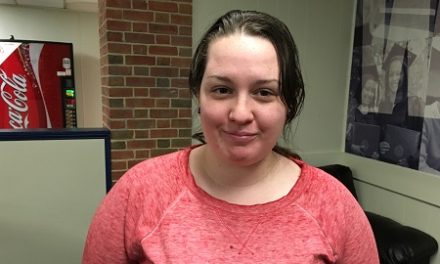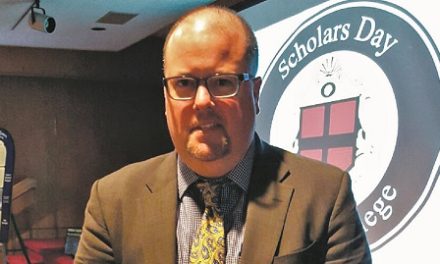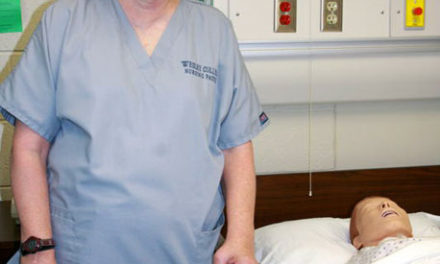By Brian Baker, (Whetstone Staff)
Animals always intrigued Kathleen Curran.
Even as a child, she could catch almost anything she saw. She once caught a field mouse, which she had to keep for ten days for rabies testing after it bit her sister.
“I told her not to squeeze it,†Curran said. “Of course, it died on the ninth day and didn’t have rabies.â€
She also caught frogs, which often got lost in the basement of her home in Westchester, New York.
So it made sense that Curran, lover of wildlife, would become a biologist. She has been teaching biology full-time at Wesley College for 13 years.
Curran, 50, was born in Flushing, Queens. She grew up in Westchester and always knew she wanted to be a biologist. She attended Fordham University in New York, where she began working with mammals. But she hated to hurt them, and switched to working with insects.
After graduating, Curran moved earned a doctorate in entomology, the scientific study of insects, at Ohio State.
It took her five years because each year she divided her time equally between classroom work and field work.
Curran researched ticks and Lyme disease. She worked long weekends and nights on her research, focusing on the ecology of the deer tick in suburban New York.
She found that 80 percent of ticks in a residential area could be controlled with one application of pesticide a year.
Curran still felt that something was missing: She wanted a family.
She found the genesis of one while working on a deer carcass checking for ticks. She met Robert Hossler, the man who would someday be her husband.
“He was a wildlife biologist taking measurements on the deer’s body,†Curran said. “By the time we were done working, he had asked me out.â€
They married in 1993, and moved to Delaware when Robert got a job as a wildlife manager for the state.
Curran has two daughters, Maureen, 16, and Laurel, 13. Once her children were born, Curran realized she could not dedicate herself to research as she had done before and still have time to be a mother.
Instead, she got a job at Wesley College as an adjunct professor. After a full-time professor here retired, Curran was offered a full time job in 2000.
She teaches biology, animal behavior, ecology, and entomology, along with acting as chair of the science department.
“Being at a small college gave me time and flexibility,†Curran said. “I could teach and still go to my kids’ soccer games in Milford and Smyrna.â€
Curran has pictures of her daughters on her desk in her office and on her computer’s screensaver. She volunteers for their book fairs. She said she makes sure she attends as many of their soccer games as she can. She is on the board for the local Central Delaware Soccer Association.
Curran’s hobby is beekeeping.
“I’ve always been interested in bees,†Curran said. “Their behavior intrigues me. If you know what’s going on, it’s like a soap opera in their hives.â€
Aside from enjoying watching As the Hive Turns for fun, Curran is worried about the future of bees – pesticides have been blamed for a recent population decline.
She also has an idea that will make her small colony profitable.
“I’d like to market their honey,†she said with a smile. “Make a profit on it, give it a name. I’ve already got a name picked out.†She won’t reveal the name until she’s ready to sell honey.
Curran also is thinking about taking up other hobbies. She believes it is important to try new things.
“I’ll probably pick up another hobby in a few years,†she said. “Maybe sculpture or carpentry.â€
“After all†– the biology teacher, tick researcher, beekeeper, mother, and aspiring entrepreneur said – “everyone needs a hobby.â€

